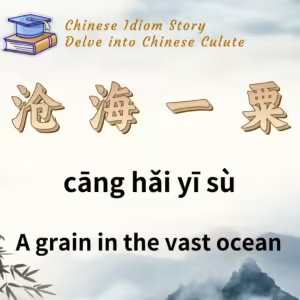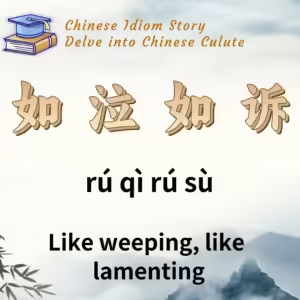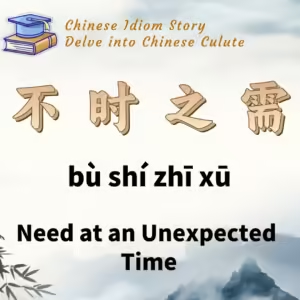
Chinese Idiom: 沧海一粟 (Cang Hai Yi Su)
English Translation: A grain in the vast ocean
pīn yīn: cāng hǎi yī sù
Idiom Meaning: This idiom is used to express something that is extremely small or insignificant in comparison to a larger context.
Historical Source: Su Shi’s Preface to the Red Cliffs (《前赤壁赋》).
Idiom Story:
In the second year of the Yuanyou era (1079 AD), Su Shi (苏轼), a prominent figure of the Northern Song Dynasty, was demoted to a minor official position in Huangzhou (present-day Huanggang, Hubei Province). In 1082, he visited the famous Red Cliffs (赤鼻矶) twice, despite the fact that these cliffs were not the same as the historical site of the Battle of Red Cliffs during the Three Kingdoms period. During his visits, he penned two essays, Preface to the Red Cliffs and Postscript to the Red Cliffs, inspired by his surroundings and his contemplations on life.
On one particular day, July 16, 1082, Su Shi and his friends took a boat ride on the river. The gentle breeze created a serene atmosphere as they enjoyed drinks and recited poetry, including Cao Cao’s Short Song Line and verses from The Book of Songs. They reveled in the moment until the moon rose high in the sky, with white mist enveloping the river. Their small boat drifted across the vast water, and they felt as if they had transcended the mundane world.
As they enjoyed the beautiful scenery, Su Shi began to reflect on his own political misfortunes. He recalled the historical feat of Zhou Yu defeating Cao Cao’s massive army at the Red Cliffs. In a moment of melancholy, he expressed, “Just as we live here like fishermen and woodcutters on the riverbanks, making friends with the fish and shrimp, sailing in a small boat and drinking from gourd cups, we are as fleeting as mayflies in this world, and as insignificant as a grain in the vast ocean.”
In this context, “fishermen and woodcutters” represented his own state of being exiled; “mayflies” symbolized the brevity of life; and “a grain in the vast ocean” highlighted how small and insignificant individual existence can feel in the grand scheme of things.
Over time, people simplified the phrase “沧海之一粟” (a grain in the vast ocean) to the idiom “沧海一粟,” which serves to convey the idea of something being trivial or minuscule compared to a larger entity.






